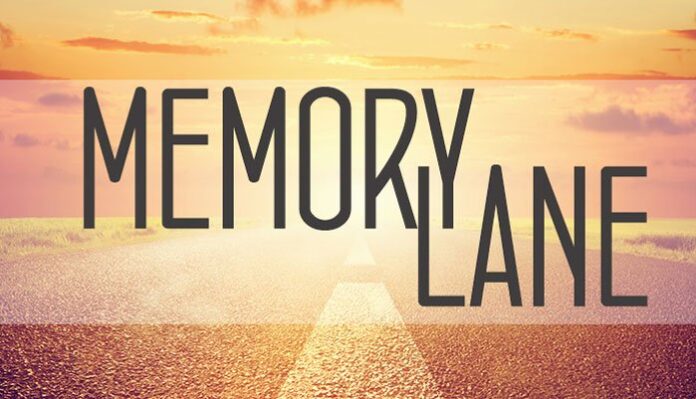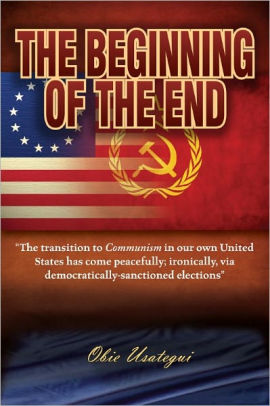Facebook is Trying to Censor Us
Don't let Facebook determine what you are allowed to see. Subscribe to our newsletter to get notified via email whenever we release new articles. Click here to subscribe.
As you all know, the older we get, the more we tend to reminisce about our life – before we know it, life becomes like an album of photos, a collection of all kinds of memories, thus the old cliché, “the older you get the wiser you are.”
Furthermore, I venture to say, in all our memory albums there seems to be certain recollections which stand-up as landmarks. Highlights of events, things, situations, memoirs which were sufficiently meaningful for us to save them in our memory banks for a lifetime. They will last with us till we go to our graves. I am certain most of you can relate precisely to what I am talking about, can you not?
In my most recent trip down memory-lane, for some unknown reason, I went back to my first year in college circa 1965 and I remember reading a book in my English 101 class, which was required reading at the time. The name of the book was “Nineteen Eighty-Four” [1984]. Book was written by English novelist George Orwell who published it on June 8, 1949. Again, for some inexplicable reason, the essence of this book marked my life for good and has lasted to where I keep referencing it as I go along in my life, to where nowadays, it has become a recurring reminder of all that is taking place around us, thus, my decision to make it the central focus point of today’s narrative.
For those of you who have not read this book, it is a social science fiction novel, where Orwell, the author, centers on the consequences of totalitarianism, mass surveillance, and a repressive regimentation of persons and behaviors within a society.
The story takes place in an imagined future in the year 1984, when much of the world had fallen victim to a perpetual war, omnipresent government surveillance, and propaganda. Great Britain, known as Airstrip One, had become a province of a totalitarian superstate named Oceania that was ruled by the Party who employs the Thought Police to persecute individuality and independent thinking. Big Brother, the leader of the Party, enjoyed an intense cult of personality despite the fact that he may not even exist. The novel’s protagonist, Winston Smith, is a diligent and skillful rank-and-file worker and Outer Party member who secretly hates the Party and dreams of rebellion.
But…why am telling you about this? Why did this book mark my life? How is this book relevant to our life today? Well, let me tell you why. I will preface my comments by saying that “1984” was awarded all kinds of literary prizes. For me, personally, the most amazing, stunning, and incredible thing about this book is when it was written and the foresight of the author. Suffice to say that when I first read it in 1967, the year 1984 seemed, at the time, a distant future, let alone 2021, the latter like a remote travel-in-time impossibility almost.
As I was lucky enough to make it to both these dates [1984 and 2021], the contents of the novel, in retrospect, now appear to be timeless if yet completely genuine to the times. I dare say an incredible resemblance and/or parallel to most everything that it is going on nowadays with the Democratic Party and the prevalent Communization taking place. For all I know, the magnanimity of this book lies on the fact that, it could just as well be written yesterday, and you could not tell the difference.
Here some of the parities. Orwell, a democratic socialist himself modeled the fictional authoritarian government in the novel after Stalinist Russia. Winston Smith is a low-ranking member of the ruling Party, [today’s Democratic Party] in the nation of Oceania [today’s United States]. Everywhere he goes [you and I today] even his home, the Party [Big Government], watches him [us] through telescreens; everywhere he looks, he sees the face of the Party’s seemingly omniscient leader[s], known only as “Big Brother” [Big Tech in today’s world]. The Party [Democrats] are in control of everything in Oceania [in the U.S. today]. Even the people’s history and language [today, our identities] are in control of the Party. As the novel opens, Winston [you and I today] feels frustrated by the oppression and rigid control of the Party, which prohibits free thought, sex and any expression of individuality [today’s open attacks on our freedoms].
I could go on and on if I wanted, but I think you get the message, do you not? Again, 1984 could just as well been written a couple of weeks back and you could not tell the difference. Notably and curiously, wherever you choose to go and learn about Orwell’s Nineteen Eight-Four Novel, you will see it defined as: “a dystopian” social science fiction novel. This is where the parallels become, metaphorically speaking, very similar if not identical almost to our world today. At center-stage of this definition is the term “dystopian” – as an adjective, relating to or denoting an imagined state or society where there is great suffering or injustice. As a noun, a person who imagines or foresees a state or society where there is great suffering or injustice. Need I say anymore?
In closing, I urge everyone, if you have not done so, to read 1984, this timeless piece of literary excellence. As you do, it will just serve to remind you, as it does me, that, maybe, just maybe, George Orwell, could have been, like Nostradamus, a prophet in his own time and, when he wrote this novel – he might have based it on all that is now taking place in our own 2021 “dystopian” United States – only difference, ours is not a novel, ours is the real thing! May God save us and may God save the United States of America.



 When you subscribe, you’ll be notified directly via email every time we post a new article here on the Patriot Observer. I’ll also email you a digital copy of my book, “The Beginning of the End”, which has, unfortunately, become somewhat of a Crow’s Mouth in the way it predicted the path that this country would take under Barack Obama – the very same one that is now being continued by his lackey, Joe Biden.
When you subscribe, you’ll be notified directly via email every time we post a new article here on the Patriot Observer. I’ll also email you a digital copy of my book, “The Beginning of the End”, which has, unfortunately, become somewhat of a Crow’s Mouth in the way it predicted the path that this country would take under Barack Obama – the very same one that is now being continued by his lackey, Joe Biden.